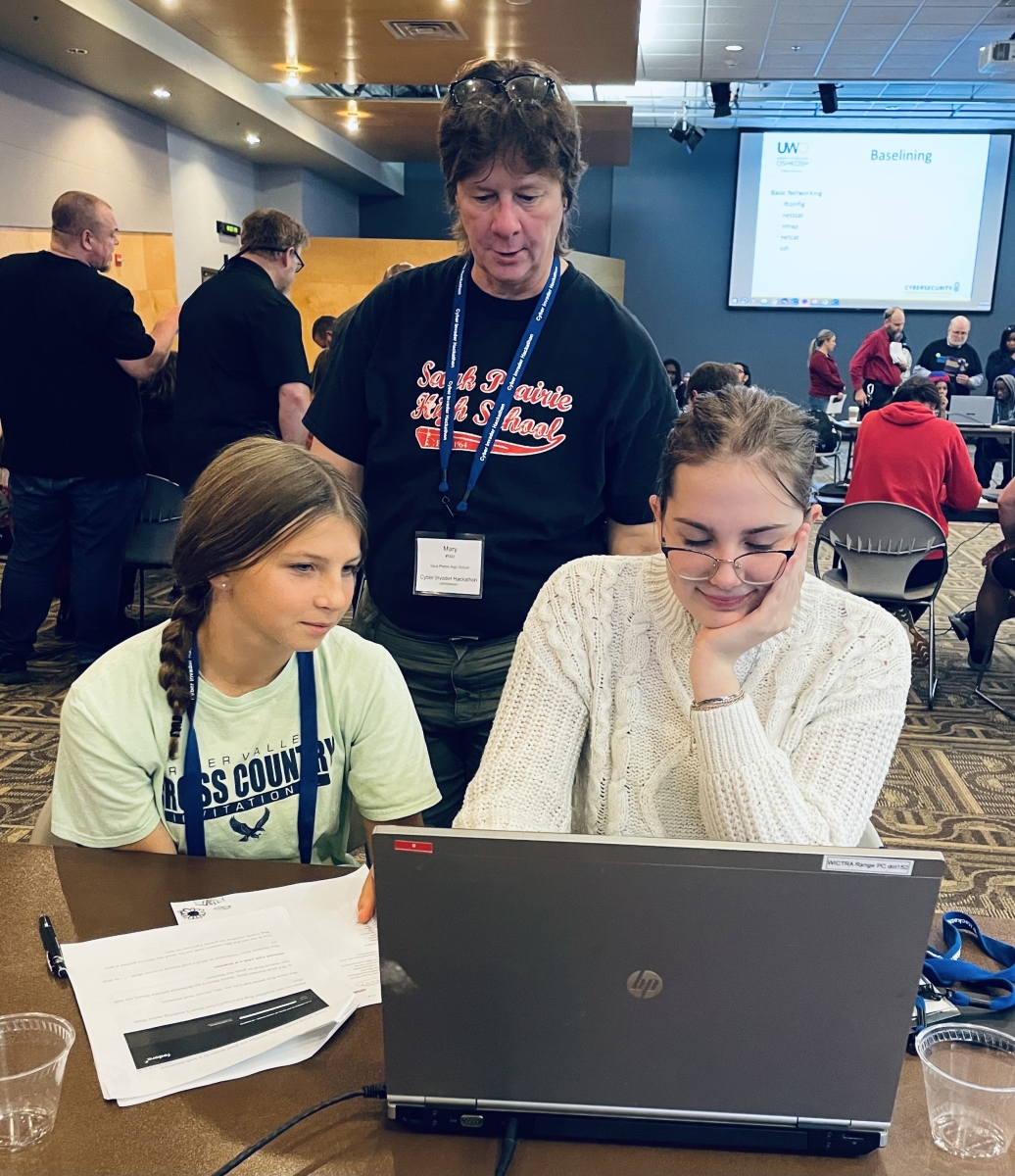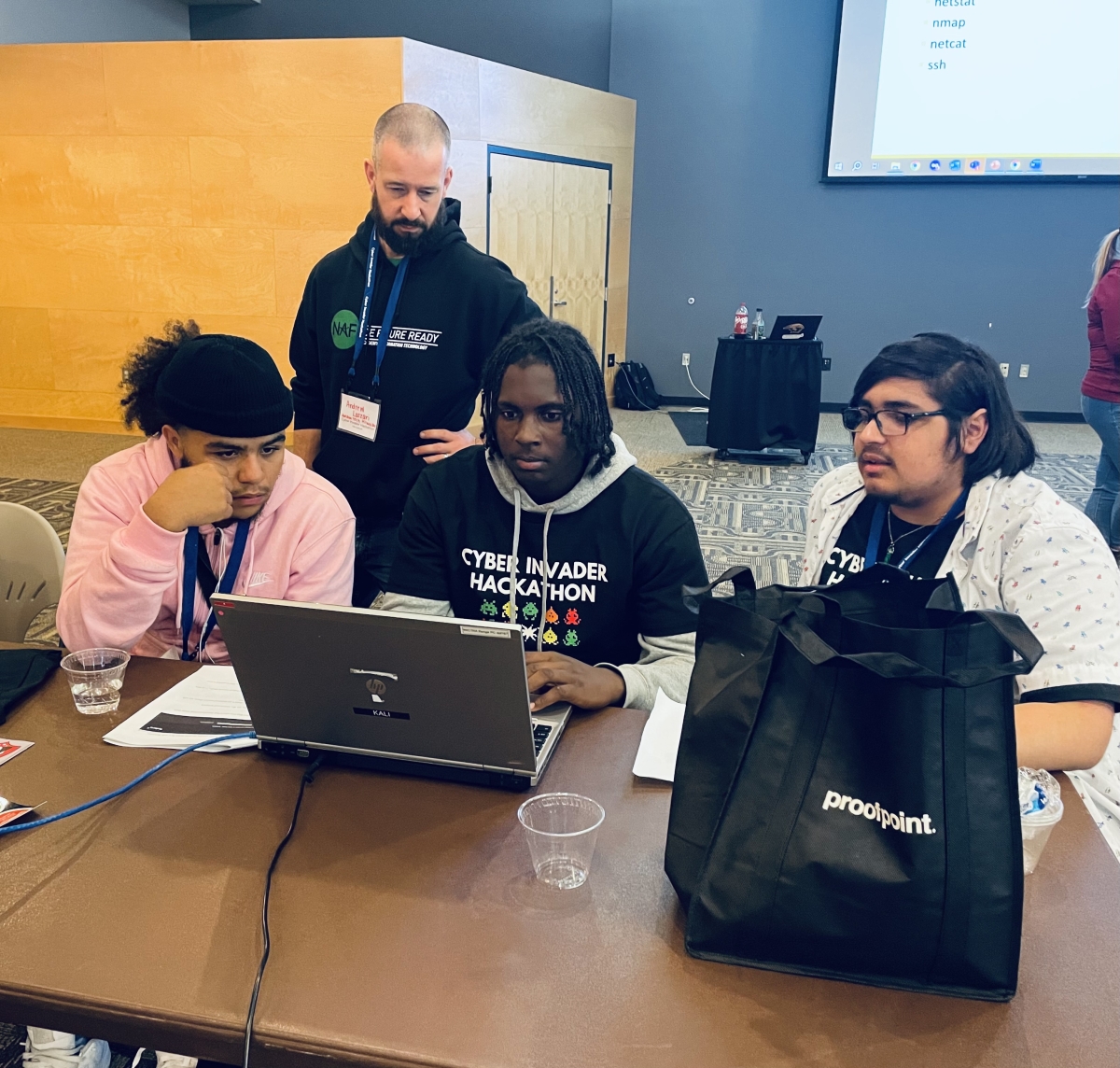
In an interview this August, State Superintendent of Public Instruction Dr. Jill Underly highlighted new technological advances and their power to transform educational experiences. Specifically, she spoke to the increased use of AI in the workforce, and our opportunity to make sure that students know how to best use it.
“I think that there’s a lot of hesitation possibly around it, and it’s kind of like when smartphones first entered the classroom,” Underly said in the media interview. “People were worried about cheating and plagiarism. I think the excitement for me around AI is that this is a really cool technology that is going to be fostering different skills in kids. The way I look at this is this is a skill for the future. Our schools are using it to prepare kids for their future. If we reject it, we’re really preparing kids for the past. And so I look at it, and it’s really exciting”
Saghar Homayounpour, a computer science teacher at New Berlin West Middle/High School, and a 2024 Wisconsin Teacher of the Year, agrees with Dr. Underly’s assessment that, “technology [intertwines] every aspect of our lives": "We need to understand and adapt to the new ways this generation sees the world," Homayounpour said.
Homayounpour stresses that we must acknowledge that “the internet has significantly changed the way we access and process information. With just a few clicks, we have access to a wealth of information. Artificial intelligence can now write a research paper in less than a minute, and Open AI can write a programming code in a matter of seconds.”
She continued, “We may not be able to rely on evaluating students’ learning based on our old well-designed assessments anymore, but we can change our approach and assess differently. Instead of worrying about easily accessible platforms, we must use technology as an opportunity to promote problem-solving, critical thinking, and collaboration, which are all the basic skills every student needs in this digital world.”

Computer Science in Wisconsin At A Glance
In November 2023, Code.org released the 2023 State of Computer Science Education report to highlight the national growth of computer science.The report for Wisconsin's state of Computer Science indicates:
- 56% of high schools offer a foundational computer science course (just shy of the national average)
- Only 21% of students who took foundational computer science were female.
- 40% of small school districts offer a foundational computer science course
Learn more about Wisconsin's report, and how we compare to other states.
Increasing the accessibility of computer science instruction means we must grow the number of educators who are confident and have the capacity to teach computer science. The Computer Science Teachers Association (CSTA) Wisconsin Dairyland chapter is focusing on building educator capacity through the CSTA Matching Experienced and Novice Teachers for Ongoing Rigorous Support in Computer Science (MENTORS in CS). As an established chapter, CSTA Dairyland has been working with teachers to build strong K-12 computer science programs since 2002. Since the first cohort started, the MENTORS in CS have worked with over 36 mentor/mentee pairs.
The MENTORS in CS program works to provide ongoing, rigorous 1:1 support to novice high school CS teachers. Mentor/mentee pairs meet regularly as individuals and in groups to identify and work towards goals from the CSTA Standards for CS teachers related to classroom practice, instructional design, and equity and inclusion.
Wisconsin Department of Public Insttufction Computer Science and Digital Learning Innovation Consultant Amy Bires said building CS capacity is essential for all educators. “Educators have the opportunity to find new and intriguing ways to integrate computer science topics into all curricular areas, one lesson at a time. One might ask, how do I get started? My advice is to start small with an Hour of Code - find one hour during a week and incorporate CS topics into a lesson or have students explore individually with Code.org's Hour of Code activities." Check out the Wisconsin DPI's Computer Science Education Week page for additional resources.
We want to hear from you. Take the DPI's Strategic Planning survey!